Guide to Choose a Skilled Nursing Care Home
May 8 marks the beginning of this year’s National Skilled Nursing Care Week. The term "skilled nursing care" implies a patient's requirement for care or therapy which could be provided only by qualified nurses in hospitals, nursing homes, or other registered facilities.
If you or a family member has suffered strokes, undergone surgery, or received substantial therapy for liver, cardiac, or respiratory disorders, they might still need rehabilitation upon discharge from the hospital. Medicare would cover skilled nursing services if you or your family member's doctor recommends specialized treatments – occupational and physical treatment – to assist them in meeting their health targets. To apply, though, you need to reside in a Medicare-certified skilled nursing home that is accredited by Medicare & Medicaid Services (CMS), adhering to stringent requirements and undergoing frequent assessments to guarantee compliance with quality level.
If you're searching for skilled nursing care homes for yourself or a family member who needs long-term support, these important considerations can assist you in making the best choice available.
1. Location
Consider if the individual in the need of care would favor either an urban or remote area. In any instance, proximity to a hospital is helpful. If the individual wishes to maintain contact with his or her own physician, the nursing home should be located close to the physician's office. It is also critical that the site permits regular and easy visits from family members and friends, as this often influences the patient's development.
2. Accident prevention
Avoiding risks is critical, even more so when a person is unable to move freely. The majority of reputable nursing homes place an emphasis on preventing accidents, since even slight incidents may be deadly for the elderly. All spaces must be free of little low things that might trip somebody. Stools ought to be stable and resistant to tipping. Guard rails in corridors and bed-rails in bedrooms both improve safety and promote independence.
3. Fire safety
A well-designed building should adhere to all applicable government fire safety requirements. To verify that a nursing home is in compliance with state safety standards, learn about its most recent fire safety check history. Avoid investing in an institution that has not been investigated and certified as fire secure within the last year.
Proper management is critical for minimizing fires and averting disasters. Exits and escape routes should be well labeled and unobstructed. A qualified nursing home conducts periodic fire drills to familiarize members with the shortest exit route from the structure, regardless of where they are at that time. There ought to be a documented emergency escape plan ready. Also, enough personnel must be on hand to assist individuals who are unable to move alone.
4. Cleanliness
There is considerable variance among reputable nursing homes. Would the patient want extreme neatness or a lived-in appearance? Undesirable scents are a sign of an unclean house or inadequate care for the incapacitated. Nevertheless, you might detect a faint stench of urine due to the difficulty of totally eliminating it, and excellent nursing homes would not conceal smells with heavily scented sprays.
5. Lobby
The lobby may include a variety of seating options, plants and decorations, and a message board with information about upcoming events and meals. There ought to be a record of any decision published by the authority relevant to the institution on exhibition in the lobby. It is imperative that these materials be made accessible to the general public.
6. Toilet facilities
A basin and safety rails near the toilet must be provided for people who ride wheelchairs. Each bedroom in a reputable nursing home would have its own private bathroom with an emergency call bell on the wall next to it. Bathtubs or showers may be found near each bedroom in certain long-term care homes, while others offer centralized bathing spaces.
7. Medical services
Every nursing home should have a doctor on call in case of an emergency. In addition, the institution should have a specialist or group that serves as an advisory body. Patients in great nursing homes have the option of being handled by their own private doctors. They even demand that patients be visited as often as is required by a doctor.
All patients are expected to undergo a complete medical examination either soon before or immediately after their enrollment in the nursing home. It is also important for the doctor and nurse to include the patient in developing a plan for their care and support while in the skilled nursing care home, as well as in amending the plan as the patient's condition changes.
The patient or their guardian has the last decision in any situation impacting the patient's health. The patient (or guardian) owns the right to be informed of their health conditions and to be involved in the treatment process regarding medical care.
8. Hospitalization
A competent long-term nursing home would often have a relationship with a local hospital in the event that patients become seriously sick. Inquire the administrators about what procedures the nursing home has in place and what happens in their presence in the case of emergencies.
9.Nursing services
The competency and attitudes of the nursing staff are likely to have a greater impact on a patient's feeling of well-being than any other service provided. Patients in nursing homes who are sick seriously to require skilled nursing care must be directed by registered nurses, who have considerable training and a range of additional years of professional education under their belts. A registered nurse might not be on call throughout all hours, but he or she should be in charge of other nursing staff at all times. Licensed practical nurses, who have completed at least a year of advanced training, must be on call 24 hours each day, seven days a week.
10.Rehabilitation
Patients ought to have access to full- or part-time professionals who can assist them in regaining lost skills such as standing, speaking, and eating. Rehabilitation consultants can assist people in overcoming disabilities such as hearing loss, as well as developing vocational and leisure skills that are individually fulfilling.
11. Activities program
One of the most effective programs is to help individuals feel less isolated, both from other patients in the nursing home and from the rest of the world. Patients who are able to go out may take advantage of opportunities to visit theaters, galleries, and gardens as well as their loved one's residences to keep themselves entertained and engaged. The public may be invited to donate their time to help the inhabitants by visiting them or working alongside them. Each patient ought to have a plan of activities that are tailored to his or her particular interests and talents. Individual hobbies, such as reading and painting, as well as group events, such as sports, handicrafts, and social gatherings, may be incorporated. Patients may be motivated to involve, but they must not be compelled to do so.
While selecting the most appropriate nursing home is usually a difficult task, keeping these considerations in mind will enable you to escape from the genuine misery that many people suffer. Do your investigation, implement these guidelines, and have a positive attitude. You would locate the ideal skilled nursing care home in a few days.
Recommend Products
-
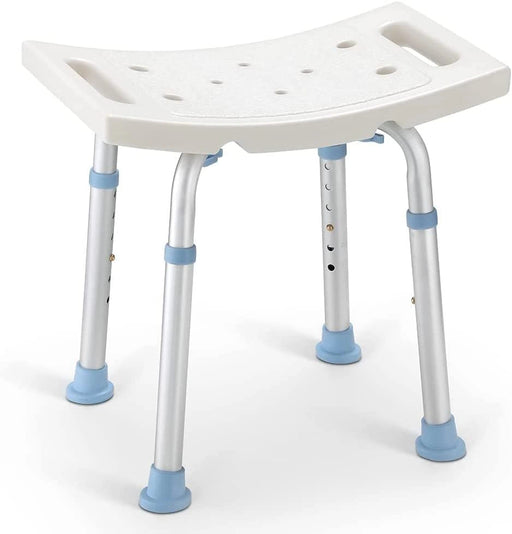 Sale
Sale
Standard - 300LBS Capacity Shower Stool
Original price $51.99From Original price $28.99Original price $51.99Current price $28.99From $28.99Current price $28.99OasisSpace Medical Square Shower Stool for Bathtub OasisSpace Square Shower Stool for Bathtub is approved as the highest standard(FDA) for medical...
View full detailsSaleOriginal price $51.99From Original price $28.99Original price $51.99Current price $28.99From $28.99Current price $28.99 -
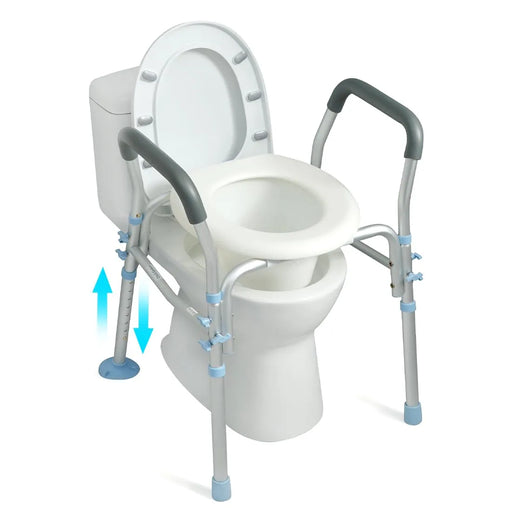 Sale
Sale
300LBS Capacity Raised Toilet Seat with Arms
Original price $120.99From Original price $69.99Original price $120.99Current price $69.99From $69.99Current price $69.99OasisSpace Raised Toilet Seat with Arms - Safe and Convenient OasisSpace Raised Toilet Seat with Arms provides stable support for users to sit dow...
View full detailsSaleOriginal price $120.99From Original price $69.99Original price $120.99Current price $69.99From $69.99Current price $69.99 -
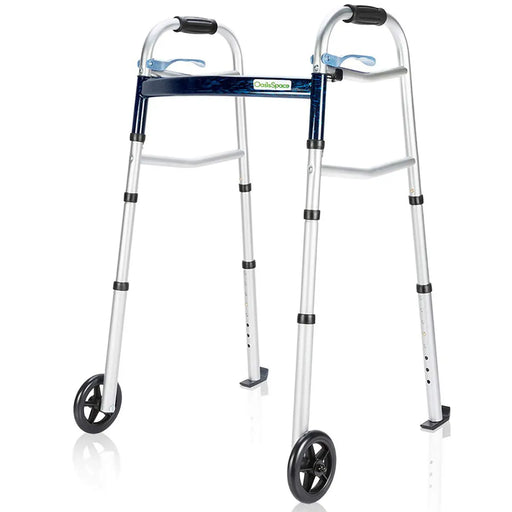
350LBS Capacity 2 Wheel Walker
From Original price $39.99Original price$39.99From $39.99Current price $39.99Product Advantages OasisSpace's 350LBS Capacity walker offers a fusion of lightweight design and sturdy support, crafted from high-grade anodized ...
View full detailsFrom Original price $39.99Original price$39.99From $39.99Current price $39.99 -
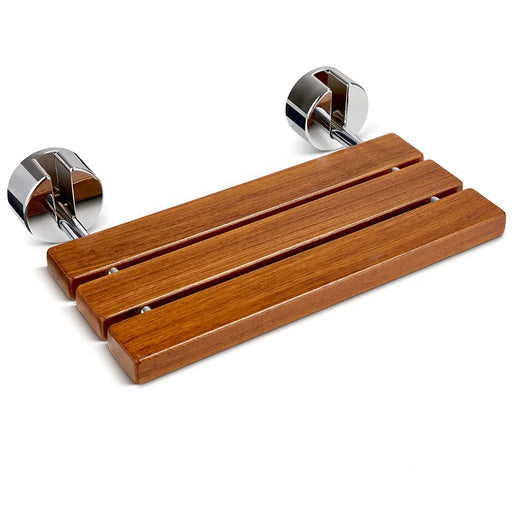
Wall Mounted - 400LBS Capacity Teak Folding Shower Seat
From Original price $131.99Original price$131.99From $131.99Current price $131.99Advantages OasisSpace Teak Wall-Mounted Shower Seat adopts a folding design, which can save space to the greatest extent and can be folded up at a...
View full detailsFrom Original price $131.99Original price$131.99From $131.99Current price $131.99 -
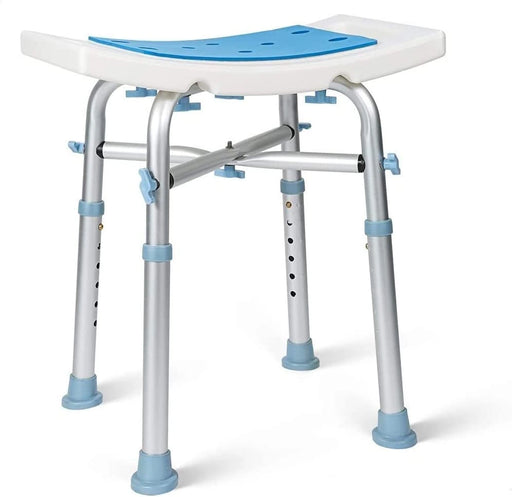 Sale
Sale
Padded & Bariatric - 500LBS Capacity Heavy Duty Shower Stool
Original price $57.99From Original price $36.99Original price $57.99Current price $36.99From $36.99Current price $36.99OasisSpace Medical Heavy Duty Bariatric Shower Stool OasisSpace Medical Heavy Duty Bariatric Shower Stool is approved by the FDA, which is the hig...
View full detailsSaleOriginal price $57.99From Original price $36.99Original price $57.99Current price $36.99From $36.99Current price $36.99 -
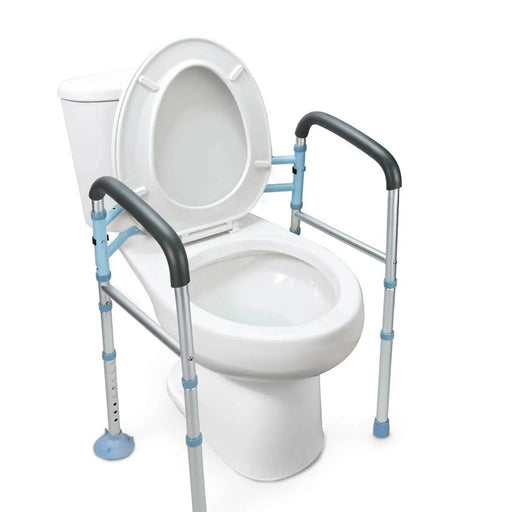 Sale
Sale
300LBS Capacity Stand Alone Toilet Safety Rail
Original price $69.99From Original price $44.99Original price $69.99Current price $44.99From $44.99Current price $44.99OasisSpace Toilet Safety Rails - Fit Any Toilet OaisSpace stand-alone toilet safety rails provide sturdy support for the elderly and people with ...
View full detailsSaleOriginal price $69.99From Original price $44.99Original price $69.99Current price $44.99From $44.99Current price $44.99







